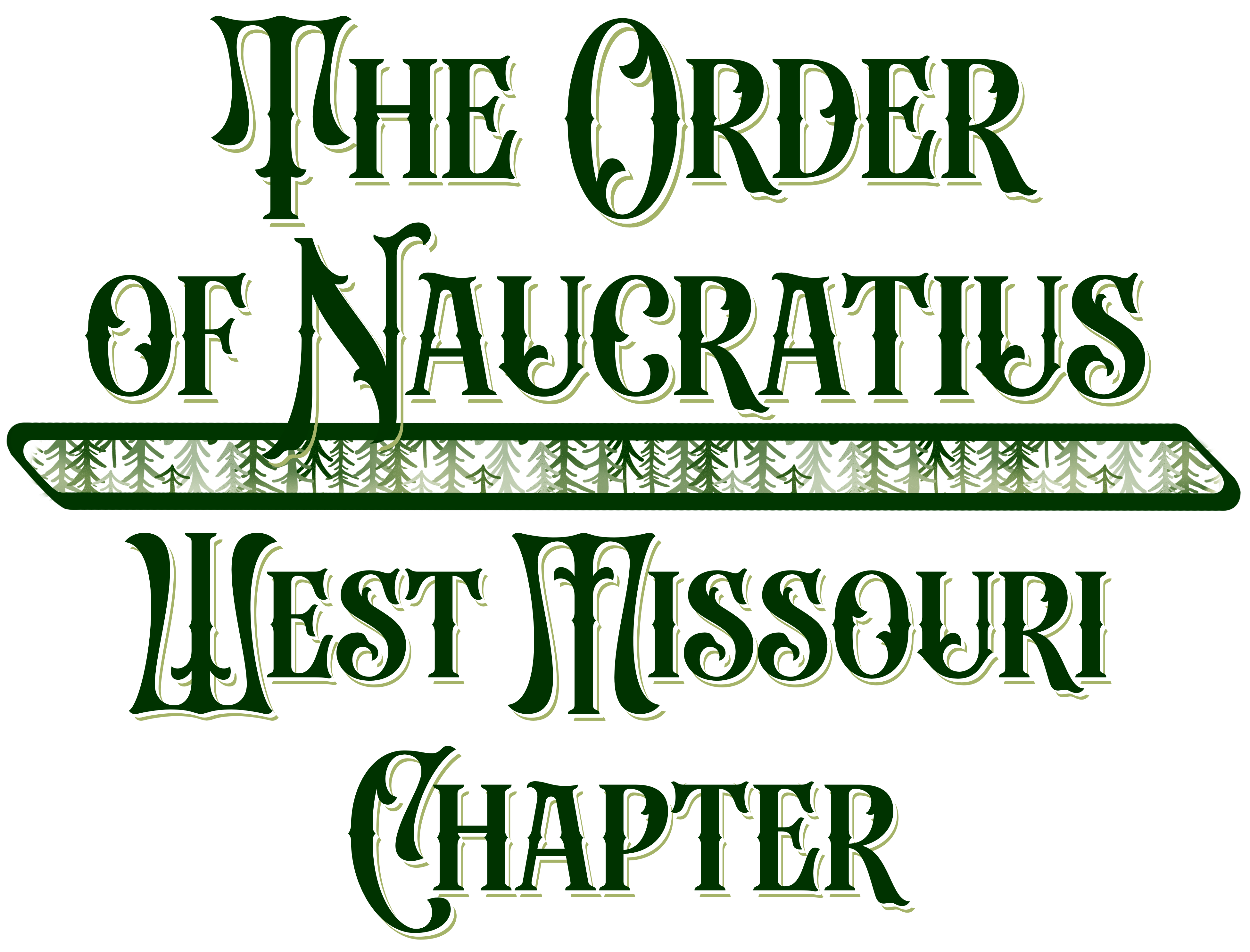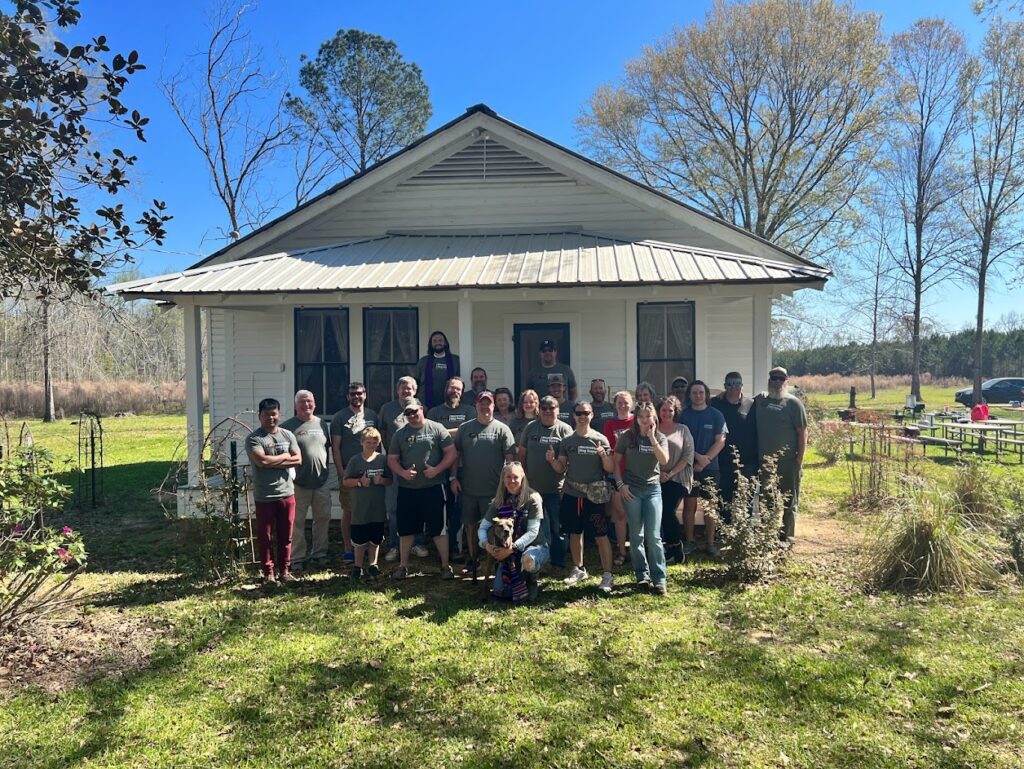

Welcome to the Order of Naucratius West Missouri Chapter
The Order of Naucratius Chapter, rooted in the ancient Christian tradition and inspired by the remarkable life of Naucratius, is a dedicated community of hunters, anglers, and stewards of the land.
Frequently Asked Questions
Take, Break, Bless, and Give. This also known as the 4-fold anaphora, fancy church talk for what we do at the Liturgy of the Table on Sundays. It recalls us to the creation stories, and reconciliation of our faith-ancestors from the time of Eden to present. It also happens to be the guiding principles by which The Order of Naucratius takes its inspiration for ordering our common life.
Take: We are a religious order of hunters and anglers, who take game from God’s creation. We harvest these animals for food and for good stewardship.
Bless: One of the elements of being an organization who strives to think more theologically about our favorite past-time is to invoke God’s blessing upon our efforts. As humans who belong to a greater order of all living things, we desire to rightly order ourselves within that and have grateful hearts for the harvest.
Break: Being connected to the harvest includes the breaking of the gifts. We set up a process by which hunters and anglers can bring their game to be prayerfully processed, stored, and distributed to those in need.
Give: Jesus told his followers to feed people and that is exactly what we aim to do. Through sharing significant portions of our harvest with those who are hungry.
All religious orders of the Christian church require their members to follow different “rules of life.” Rules of life can vary from strict daily schedules and disciplines and specific do’s and don’ts to generic guidelines or codes of conduct. Members of the Order of Naucratius commit to a simple three-fold rule of life: Prayer, Conservation, and Christian Charity.
Prayer
Members of The Order of Naucratius recognize the holy mysteries of our life. Regardless of what your diet may or may not include something else must die, or be wholly changed, so that we might flourish as humans. Part of God’s creation, which He calls good and loves, dies in order that His good creation may live. Those of us who choose to eat meat and fish also choose to do so mindfully. We pray before hunting, before fishing, and after harvest, or even without a harvest we give God thanks. We pray before meals, and as we butcher and process our food, from field to truck to table or pantry. In this way, we honor the dignity of creation, and rightly align ourselves as part of God’s created order.
Conservation
Naucratius lived in solitude, and he used his gifts in ability and skill to follow what he thought was God’s call for his life. He found a quiet place next to the river and there, fostered a healthy ecosystem and natural habitat. Members of The Order of Naucratius commit to making individual and communal efforts in environmental conservation/stewardship. Stewardship and conservation can encompass many different approaches, our intent is not to organize for activism, rather we encourage the individual to engage in these issues as they see fit.
Charity
At the feeding of the 5,000, Jesus said to his disciples, “You feed them.” We take that mandate seriously, and so did Naucratius. Though he lived in isolation, Naucratius endeavored to be a champion for the hungry. Members of The Order of Naucratius commit to giving a significant portion of their harvests to those who are hungry. We accomplish this task through various agencies and initiatives, or through personal contact.
Naucratius was the son of Basil the Elder and Emmelia of Caesarea. He had distinguished himself both in scholarship and Christian devotion, as an active hermit, a living example for his famous brothers, Basil and Gregory of Nyssa, and sister Macrina the Younger. Naucratius’ brother Gregory wrote the following about him in his book “Life of Macrina”:
“The second of the four brothers, Naucratius by name, who came next after the great Basil, excelled the rest in natural endowments and physical beauty, in strength, speed and ability to turn his hand to anything. When he had reached his twenty first year, and had given such demonstration of his studies by speaking in public, that the whole audience in the theatre was thrilled, he was led by a divine providence to despise all that was already in his grasp, and drawn by an irresistible impulse went off to a life of solitude and poverty. He took nothing with him but himself, save that one of the servants named Chrysapius followed him, because of the affection he had towards his master and the intention he had formed to lead the same life. So he lived by himself, having found a solitary spot on the banks of the Iris-a river flowing through the midst of Pontus. It rises actually in Armenia, passes through our parts, and discharges its stream into the Black Sea. By it the young man found a place with a luxuriant growth of trees and a hill nestling under the mass of the overhanging mountain. There he lived far removed from the noises of the city and the distractions that surround the lives both of the soldier and the pleader in the law courts. Having thus freed himself from the din of cares that impedes man’s higher life, with his own hands he looked after some old people who were living in poverty and feebleness, considering it appropriate to his mode of life to make such a work his care. So the generous youth would go on fishing expeditions, and since he was expert in every form of sport, he provided food to his grateful clients by this means. And at the same time by such exercises he was taming his own manhood.
“In this manner he completed the fifth year of his life as a philosopher, by which he made his mother happy, both by the way in which he adorned his own life by continence, and by the devotion of all his powers to do the will of her that bore him.
“Then there fell on the mother a grievous and tragic affliction, contrived, I think, by the Adversary, which brought trouble and mourning upon all the family. For he was snatched suddenly away from life. No previous sickness had prepared them for the blow, nor did any of the usual and well known mischances bring death upon the young man. Having started out on one of the expeditions, by which he provided necessaries for the old men under his care, he was brought back home dead, together with Chrysapius who shared his life. His mother was far away, three days distant from the scene of the tragedy. Some one came to her telling the bad news. Perfect though she was in every department of virtue, yet nature dominated her as it does others. For she collapsed, and in a moment lost both breath and speech, since her reason failed her under the disaster, and she was thrown to the ground by the assault of the evil tidings, like some noble athlete hit by an unexpected blow.”